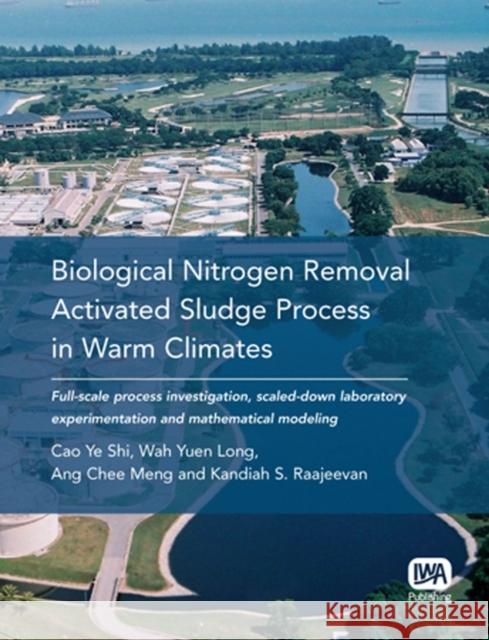Biological Nitrogen Removal Activated Sludge Process in Warm Climates » książka
Biological Nitrogen Removal Activated Sludge Process in Warm Climates
ISBN-13: 9781843391876 / Angielski / Miękka / 2008 / 170 str.
Special Offer: Cao Ye Shi Author Set - Buy all three books together and save a total 76
Many Biological Nitrogen Removal (BNR) activated sludge processes in warm climates are conservatively designed, because little systematic investigation has been carried out on the BNR activated sludge process in warm or tropical climates, although many studies under temperate climate conditions are available. This book covers a wide spectrum of mechanistic approaches to deal with BNR activated sludge related issues such as sewage and sludge characterization, dynamic performance of full-scale processes, laboratory simulation and modelling that leads to a mechanistic and more economic design. Recommendations on the operation, upgrading and design of BNR activated sludge process are formulated. This will significantly aid the promotion of nitrogen removal in wastewater treatment plants in warm or tropical climates, particularly in developing countries. The book has three purposes: to make recommendations for appropriate upgrading of existing activated sludge processes and assess the performance of the upgraded activated sludge processes; to explore the feasibility of employing laboratory-scale systems to simulate the performance of full-scale processes; and to use mathematical modelling calibrated with the measured data obtained from the laboratory-scale experimentation to study the performance and the design of full-scale processes.
Reports are presented of comprehensive studies on: (i) on-site investigation of the activated sludge processes in three water reclamation plants (WRPs) in Singapore; (ii) laboratory-scale investigations to simulate the performance of full-scale activated sludge processes and to optimize the process design; and (iii) mathematical modelling and simulation with Activated Sludge Model No. 1 (ASM No. 1). Based on these detailed studies, guidelines on the operation, upgrading and design of the BNR activated sludge process in warm climates are presented.
Results indicate that the laboratory-scale systems, designed based on the scale-down principles developed in this study and mathematic simulation with the model parameters calibrated by using the data obtained from the laboratory experiment, were able to describe the performance of the full-scale process.The applications of the approaches and principles are not limited to geographic locations and types of pollutants, and thus can reduce significantly the cost and time for the process development of the activated sludge process.
This book will be an invaluable reference source for process and design engineers and consultants concerned with biological wastewater treatment as well as researchers in universities and research institutes.











